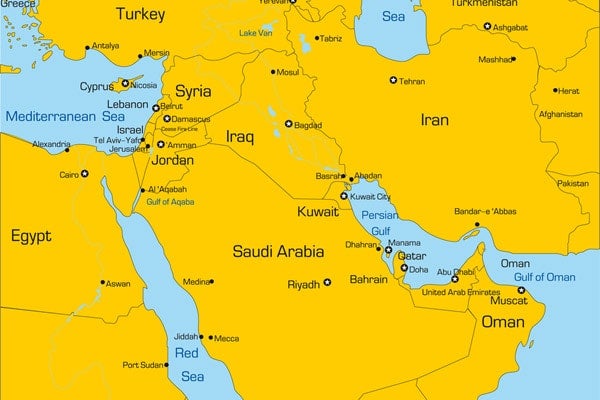
Liberal-democratic ideas don't have universal support in Middle East
Published: January 27, 2012
Liberal-democratic attitudes in the Middle East and North Africa aren’t universal, say two University of Toronto sociologists.
Analysis of liberal-democratic attitudes in the Middle East and North Africa on the eve of the Arab Spring by Robert Andersen and Robert Brym reveals some of the difficulties that face the democracy movement in those regions.
The two professors examined the results of a 2009 survey of liberal-democratic attitudes in 16 countries of the Middle East and North Africa by international pollster Gallup.
“Our aim was to discover the factors that can inform pro-democracy policy and contribute to citizen inclusion in a nation’s political life,” said Brym about the project’s origins.
They found that citizen inclusion and the degrees of popular support for freedom of speech, religion, and assembly varied from one nation to the next. Moreover, “only a small majority of adult citizens in the countries surveyed — barely more than 50 per cent — endorse all three freedoms,” said Brym.
Eight nations in the study — Turkey, Tunisia, Sudan, Qatar, Morocco, Mauritania, Lebanon, and Iraq — pass the 50 per cent threshold, while the other eight — Afghanistan, Algeria, Egypt, Jordan, Kuwait, the Palestinian Territories, Syria, and Yemen — do not. Surprisingly, individual factors, such as gender, income, education, and religion have little effect on support, whereas two contextual factors — national GDP per capita and percentage of women in the paid labour force — significantly influence support for democratic freedoms.
Brym said the findings suggest policy initiatives that could increase citizen inclusion in the region, such as programs designed to boost GDP per capita in the poorest countries and increase the participation rate of women in the workforce. However, he emphasizes that such programs are unlikely to increase support for democratic freedoms unless accompanied by efforts to promote tolerance.
“Inclusive citizens are, by definition, tolerant of ethnic, racial, religious, and gender diversity. So, it is necessary to work on two fronts — the education of inclusive citizens and the creation of new opportunities for citizen inclusion,” he said.
Among the authors’ recommendations are the development of programs to promote tolerance in schools and the media, the establishment of socially heterogeneous, community-level voluntary organizations that contribute to the solution of societal problems, and the creation of public spaces for open political discourse among non-elites.
Brym and Andersen were the only Canadians among 75 scholars, journalists, and policy makers invited to attend last month’s inaugural Abu Dhabi Gallup Forum for discussions on citizen inclusion, Arab youth, political violence, and relations between the Muslim world and the West. There they presented their findings and led the working group that developed the above recommendations. In February, the Abu Dhabi Gallup Center will publish their report in English and Arabic.



